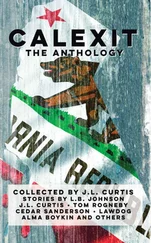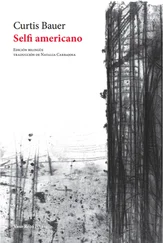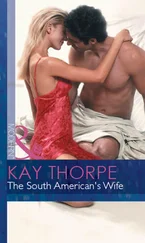Curtis Sittenfeld - American Wife
Здесь есть возможность читать онлайн «Curtis Sittenfeld - American Wife» весь текст электронной книги совершенно бесплатно (целиком полную версию без сокращений). В некоторых случаях можно слушать аудио, скачать через торрент в формате fb2 и присутствует краткое содержание. Жанр: Старинная литература, на английском языке. Описание произведения, (предисловие) а так же отзывы посетителей доступны на портале библиотеки ЛибКат.
- Название:American Wife
- Автор:
- Жанр:
- Год:неизвестен
- ISBN:нет данных
- Рейтинг книги:4 / 5. Голосов: 1
-
Избранное:Добавить в избранное
- Отзывы:
-
Ваша оценка:
- 80
- 1
- 2
- 3
- 4
- 5
American Wife: краткое содержание, описание и аннотация
Предлагаем к чтению аннотацию, описание, краткое содержание или предисловие (зависит от того, что написал сам автор книги «American Wife»). Если вы не нашли необходимую информацию о книге — напишите в комментариях, мы постараемся отыскать её.
American Wife — читать онлайн бесплатно полную книгу (весь текст) целиком
Ниже представлен текст книги, разбитый по страницам. Система сохранения места последней прочитанной страницы, позволяет с удобством читать онлайн бесплатно книгу «American Wife», без необходимости каждый раз заново искать на чём Вы остановились. Поставьте закладку, и сможете в любой момент перейти на страницу, на которой закончили чтение.
Интервал:
Закладка:
“Do you dislike her?” I asked.
“Oh, no. No. She’s a formidable woman, but I don’t dislike her, and I don’t think Daddy does, either. It’s more that we all realized it might be simpler for Granny to go there than for Dr. Wycomb to come here.” My mother patted my knee. “But I’m glad they’re friends, because I know Dr. Wycomb was a real comfort to your granny after your grandfather died.” This had happened when my father was two years old; his own father, a pharmacist, had had a heart attack one afternoon at work and dropped dead at the age of thirty-three. Just the idea of my father as a two-year-old pinched at my heart, but the idea of him as a two-year-old with a dead father was devastating.
My mother stood then and kissed my forehead a second time. “Don’t stay up too late,” she said.
THOUGH MY CULTURAL enrichment had been the justification for our trip, the train had scarcely left the Riley station when it emerged that my grandmother’s overriding goal in Chicago was to buy a sable stole from Marshall Field’s. She’d seen an advertisement for it in Vogue, she confided, and she’d written a letter to the store asking them to save one in size small.
“If I’d been clever, I’d have ordered it a month ago and worn it to church on Christmas Eve,” she said.
“Does Dad know you’re buying it?”
“He’ll know when he sees me in it, won’t he? And I’ll look so ravishing that I’m sure he’ll be thrilled.” We were sitting side by side, and she winked. “I have some savings, Alice, and it’s not a crime to treat yourself. Now, let me put some lipstick on you.”
I puckered my mouth. When she was finished, she held up my chin and gazed at me. “Beautiful,” she said. “You’ll be the belle of Chicago.” Personally, I did not consider myself beautiful, but in the last few years, I had begun to suspect that I was probably pretty. I stood five feet five, with a narrow waist and enough bosom to fill out a B-cup bra. My eyes were blue and my hair chestnut-brown and shiny; I wore it chin-length and curled toward my cheeks with a wispy fringe of bangs. Being attractive felt, more than anything, like a relief—I imagined life was harder for girls who weren’t pretty.
Our train ride was just over two hours, and at Union Station in Chicago, we were met by a woman I did not recognize at first as Dr. Gladys Wycomb; absurdly, I think I’d expected her to have a stethoscope around her neck. After she and my grandmother embraced, my grandmother stood next to Dr. Wycomb and set one arm on her back. “A legend in her own time,” my grandmother said, and Dr. Wycomb said, “Hardly. Shall we go have a drink?”
They seemed to me an unlikely pair of friends, at least with regard to appearance: Dr. Wycomb was a bit heavy in a way that suggested strength, and her handshake had almost hurt. She had short gray hair and wore white cat’s-eye glasses and a black gabardine coat over a gray tweed suit; her shoes were black patent-leather pumps with low heels and perfunctory bows. My grandmother, meanwhile, always proud of her style and slimness (her tiny wrists and ankles were a particular source of pleasure to her), was especially decked out for our city visit. We’d given ourselves manicures the day before, and she’d gone to Vera’s in downtown Riley to have her hair dyed and set. Under a tan cashmere coat, she wore a chocolate-brown wool suit—the collar was velvet, the skirt fell just below her knee—complemented by matching brown crocodile pumps and a brown crocodile handbag. So prized were these accessories that she’d bestowed on them the nickname “my crocs,” and the reference was understood by all other family members; in fact, a few weeks earlier, before we’d crossed our snowy street to get to the Janaszewskis’ Christmas party, I’d been amused to hear my father say, “Mother, I urge you to wear boots outside and change into your crocs at their house.” To meet Dr. Wycomb, I also was dressed up, outfitted in a kilt, green tights, saddle shoes, and a green wool sweater over a blouse; on the collar, I wore a circle pin, even though Dena had recently told me it was a sign of being a virgin.
Outside the train station was a chaos of people and cars, the sidewalks swarming, the traffic in the street jerking and honking, and the buildings around us were the tallest I had ever seen. As we approached a beige Cadillac, I was surprised when a driver in a black cap emerged from it, took our bags, and opened the doors for us; being a lady doctor was, it seemed, a lucrative profession. The three of us sat in the backseat, Dr. Wycomb behind the driver, my grandmother in the middle, me on the right side. “We need to make a stop, if you don’t mind,” my grandmother said to Dr. Wycomb. “The Pelham at Ohio and Wabash. Phillip got it into his head that Alice and I together would be burdensome to you—you can see that Alice is very unruly and belligerent—so he made us a reservation, which of course we’ll cancel.”
“Oh, for crying out loud,” Dr. Wycomb said. “Does he really see me as such a corrupting influence?”
“We hope that’s what you are!” At this, my grandmother turned and kissed Dr. Wycomb on the cheek. I knew that kiss, the lightness of her lips, the scent of Shalimar that floated ahead of her as she approached. When she’d settled against the seat again, my grandmother said, “Don’t we?” and patted my hand. Unsure what to say, I laughed.
Dr. Wycomb leaned forward and said, “When your father was a boy, he’d remove all his clothes before making a bowel movement.”
“Oh, Gladys, she doesn’t want to hear about this.”
“But it’s instructive. It captures a certain . . . rigidity, I suppose, that Phillip has always shown. He’d remove his clothes, and when he was seated on the john, he’d shut his eyes tightly and press his hands over his ears. That was the only way he could eliminate.”
My grandmother made a face and fanned the air in front of her, as if mere words had brought the stench of a bathroom into the car.
“Am I telling the truth, Emilie?” Dr. Wycomb asked.
“The truth,” my grandmother said, “is overrated.”
“Your grandmother was my landlady,” Dr. Wycomb said to me. “Has she ever mentioned that?”
“It was scarcely as formal as you make it sound,” my grandmother said.
“In medical school, I was poor as a church mouse,” Dr. Wycomb said. “I lived in a terrible attic belonging to a terrible family—”
“The Lichorobiecs,” my grandmother interrupted. “Doesn’t that sound like the name of a terrible family? Mrs. Lichorobiec felt she’d been wronged by mankind.”
“She refused to let me keep food in the attic because she said it would attract animals,” Dr. Wycomb said. “She wouldn’t let me keep food in the pantry, either, because she said there wasn’t space. This was nonsense, but what could I do? Luckily, your grandmother, who lived next door, took pity and invited me to have my meals at their house.”
“I thought you’d starve otherwise,” my grandmother said. “I’ve always been slender, but Gladys was positively skeletal. Just a bag of bones, and big dark circles under her eyes.”
“A bag of bones,” Dr. Wycomb repeated, and chortled. She leaned forward again, and when our eyes met, she said, “Can you imagine?” In fact, I’d been thinking the same thing, but I smiled in what I hoped was a neutral and unrevealing way. “And then your poor grandfather died,” she continued. “What year was that, Emilie? Was that ’24?”
“It was ’25.”
“And your grandmother was ready to move, but I said, ‘Let’s think this through. If I’m champing at the bit to get away from the Lichorobiecs, and you’d just as soon stay in this house where you’re all settled . . . ’ And so I became your grandmother’s tenant, and we had some wonderful times.”
Читать дальшеИнтервал:
Закладка:
Похожие книги на «American Wife»
Представляем Вашему вниманию похожие книги на «American Wife» списком для выбора. Мы отобрали схожую по названию и смыслу литературу в надежде предоставить читателям больше вариантов отыскать новые, интересные, ещё непрочитанные произведения.
Обсуждение, отзывы о книге «American Wife» и просто собственные мнения читателей. Оставьте ваши комментарии, напишите, что Вы думаете о произведении, его смысле или главных героях. Укажите что конкретно понравилось, а что нет, и почему Вы так считаете.












